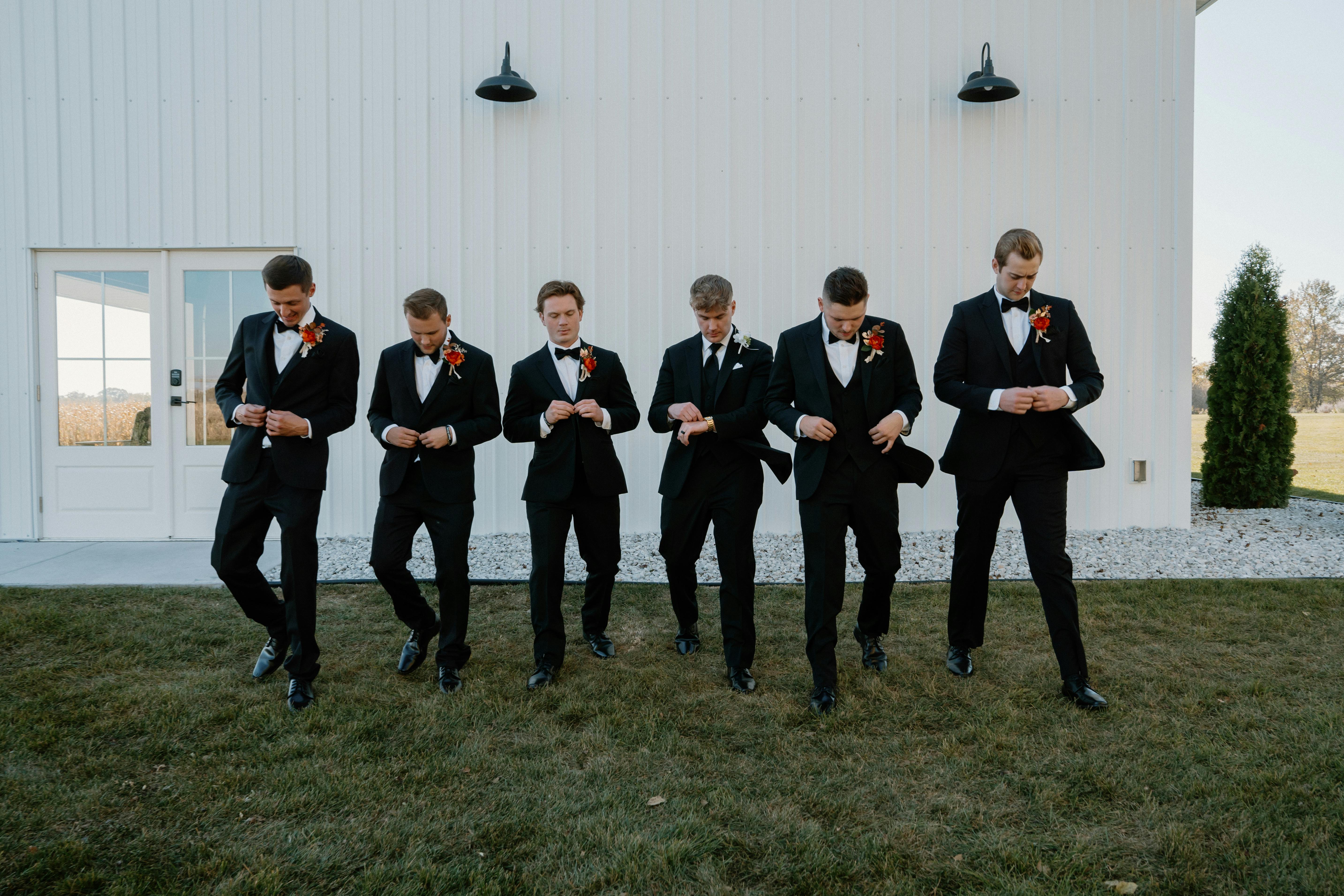Why Americans Are Getting Married Later in 2025

You see, there’s no one-size-fits-all schedule for when someone should get married. It’s something that everyone — and every couple — must weigh for themselves, taking into account their own values and emotional readiness and even practical considerations, if not just for themselves but also for others who can, and will, be potentially affected. Yet one thing is certain: People in the United States are waiting longer than ever to get married.
The median age for people to marry for the first time was 30.2 for men and 28.6 for women in 2024, according to a recent survey by the National Demographic Study Center. Numbers such as these have been consistent for decades. In 1950, men were at the median age of only 22.8, and women were at year 20.3.
So, what is slowing them down? There are cultural, financial and emotional factors that play a role in how people approach long-term commitment today.
A Shift in Cultural Attitudes
“Marriage has become a choice amongst many of us, rather than something you do because it’s what people do,” says therapist Dana Liu, who treats individuals and couples in multiple states. “It’s out of the question as a default path.”
Most couples see their relationship as valid and whole, even without the formality of marriage. Some others still even view legal unions as antiquated, or unnecessary, if only due to alternative systems such as domestic partnerships providing the same protections.
Some partners only move toward marriage once it feels important to their significant other, as opposed to something integral to life, Liu said. “It just makes it a personal choice, rather than, here in Turkey, something you do because that’s what society wants,” she says.
For still others, seeing the difficulties of marriage in their families or social circles — including separations or divorces — can instill caution. I’ve heard a lot of people worry after they see a few friends start to get divorced in their 30s,” Liu says. “They’re looking to delicately balance the risk and benefit.”

Key Role of Financial Readiness
Money is still one of the largest causes of delay for couples wanting to get married. “Many adults don’t feel financially stable enough in their 20s or early 30s to make that kind of commitment,” Liu says.
With student loans, credit card debt, high rent and costly homeownership on the rise, many people want to tackle their finances first. Some don’t want to plan a wedding they can’t afford or pool their finances while they’re still working through financial stress.
“This generation is under greater financial pressure earlier in life than previous generations,” Liu says. “That, of course, tends to delay life milestones.”
A Relationship with S elf: Emotional readiness for a Journey of S elf-Growth
Emotional maturity is for another reason responsible for an increasing age of marriage. “There’s more than just love, there’s responsibility, emotional support, personal growth,” Liu told me.
She notes that more and more people are placing their mental health and personal stability first, before rushing into a lifetime commitment. “Some are working through painful past relationships, some are prioritizing therapy or career development,” she says.
For people navigating anxiety, past trauma or instability, marriage may feel overwhelming or even unrealistic. Liu encourages clients to dig deep into what’s driving them. “Ask yourself: Why do I want to be married? Is the issue about fear of a relationship, social condition or fear of lack of stability?” she says.
3 Other Reasons Marriage May Happen Later
Beyond money and feelings, cultural and social issues also nudge the country along.
The Birth of Infinite Dating Options
The world of dating is simply much richer with options, thanks to apps and online services. As thrilling as all of that bounty can be, however, it can also feel paralyzing.
‘The process of dating has become a numbers game,” Liu explains. “People are meeting dozens of potential partners at the same time (theoretically in person or virtually at least), and that can instill the fear of settling or missing out on someone ‘better.’ ”
Many singles find they need to take a break from dating because of burnout, or because they are disillusioned, if not down right turned off, because of the people they encounter while dating: the ghosters, the guys who are only looking for a hookup, the ones who don’t know what they want and don’t communicate. All of that can delay the development of significant, long-term relationships.

Concerns About Divorce
For others, the high level of divorce in the United States is a cautionary story. Instead of jumping to an outright legal agreement, as a society we cohabit or otherwise informally commit and then kick the tires on the relationship over some period of time.
“Because it’s a legal and financial commitment, people just want to know before they sign on the dotted line,” Liu says. “And that takes time.”
Seeking Alternative Collaborations
More adults are now considering nontraditional relationship models — such as ethical non-monogamy or long-term cohabitation without marriage — in 2025.
“A lot of people still want deep commitment,” Liu says. “But they’re wondering if marriage is the only — or even the best — way to express that.”
It’s why some opt for civil unions or domestic partnerships that offer legal protections without the cultural heft of throwing a big wedding.
Final Thoughts
The choice to marry — and when to marry — has never been more of an individual and puzzle. For a great many Americans, waiting is a great gift — an opportunity to get stronger and wiser, to gain clarity and take root before signing a lifetime commitment.


